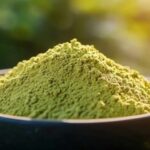Various botanical supplements have always been under scrutiny due to their complex and contentious structure, and 7-OH is one of them.
It is an isolated alkaloid found in trace amounts in kratom plants, which has been a centre of controversy among consumers, advocates, regulators, and scientists. Its benefits are known to people along with its potent nature.
This article explains the 7-OH controversy, examining the regulatory chaos, disputed effects, and importance of lab-tested products.
The Core of the 7-OH Controversy
The 7-OH controversy is based on a fundamental conflict: the compound’s potent pharmacological activity with unregulated production and distribution. Unlike whole kratom, which contains plenty of alkaloids to provide an entourage effect, 7-OH is a singular, concentrated compound that is more potent than mitragynine.
Mitragynine is kratom’s primary alkaloid that binds with opioid receptors to provide unique effects. The high potency 7-OH is pure and isolated from the plant which causes plenty of concerns in authorities. The risks of 7-OH are typically not associated with traditional kratom powder.
The debate on 7-OH is polarised. Some say that it is a dangerous synthetic opioid that causes adverse effects, while others focus on its unique benefits for pain relief and energy. The other side sees it as a natural progression, offering a more consistent and powerful option for experienced users, representing freedom of choice and botanical innovation.
7-OH Regulations and Laws
1. The 7-OH Argument:
Kratom and its alkaloids (mitragynine and 7-hydroxymitragynine) have a long history of providing relaxation and pain-relieving properties. The US Food & Drug Administration (FDA) has classified kratom as a “drug of concern” and labeled it as a herbal product that needs regulation and surveillance. However, nearly 2 million Americans consume it to gain its numerous benefits.
7-Hydroxymitragynine (7-OH) is a terpenoid indole alkaloid found in the plant Mitragyna speciosa, commonly known as kratom. First identified in 1994, it is a natural derivative of mitragynine, which is present in kratom leaves. Like mitragynine, 7-OH binds to opioid receptors, but studies indicate that 7-OH has a significantly higher binding potency.
2. DEA Scrutiny and Scheduling Concerns:
The FDA recommends scheduling 7-OH as a controlled substance. According to them, “7-OH is a potent derivative of kratom, which has the potential for abuse and risk of addiction.” It is widely available in vape shops all across the US.
The authorities have concerns over its market in youth-appealing products like vapes, gummies, and shots. Unlike traditional kratom leaves, which are known to be beneficial for a lot of people, 7-OH is a concentrated alkaloid extract that interacts with brain receptors like morphine.
The FDA warns unregulated product sellers who often misguide consumers by disguising 7-OH as kratom products. According to the HSS authority, 7-OH poses a serious public health threat, especially to young consumers.
3. State-Level Bans:
Some States have banned the sale of products containing any part of the alkaloids mitragynine and 7-hydroxymitragynine that have been chemically modified. A patchwork of 7-OH laws is created to navigate the production, sale, and consumption in all US states.
Disputed 7-OH Effects and Risk Profile
Due to the lack of clinical studies on 7-OH, the regulatory authorities and consumers are in an unending debate of pros vs cons of this botanical. Firstly, we need to understand that the extreme potency of 7-OH means the margin for error in dosing. Miscalculation in consumption can lead to adverse effects like nausea, vomiting, dizziness, and oversedation. The risk of side effects is typically higher than that of traditional kratom powder.
The use of 7-OH will rapidly increase tolerance due to the high potency. The potential for dependence is also believed to be significantly higher than plain kratom leaf.
The Critical Role of Lab-Tested 7-OH Vendors
Third-party lab testing is essential to verify the purity, potency, and safety of 7-OH products. There are growing concerns about contaminated and adulterated products, as they are causing more harm than benefits. Lab testing provides peace of mind and allows consumers to make informed decisions about the products they purchase. It’s essential to ensure that your product is pure, potent, and free from harmful contaminants.
Final Checklist Before Buying
Below is a checklist of things you should check before buying 7-OH:
- Lab name & contact info visible
- Alkaloid % within normal ranges
- Contaminants tested & passed
- The batch number matches the product
- The report is recent (<6 months old)
Also, See:
- Working Out With Kratom: Is It Worth It?
- 10-Panel Test: Does Kratom Show Up In Drug Test?
- How To Improve Mitochondrial Health? Expert Advice



